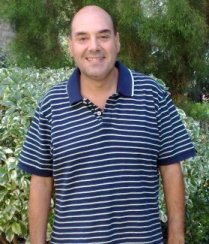Sami E. Baroudi, Assistant Provost for Faculty Affairs
Dr. Sami E. Baroudi, Assistant Provost for Faculty Affairs
 Dr. Sami E. Baroudi is the Assistant Provost for Faculty Affairs, and a Professor of Political Science. He joined LAU as Assistant Professor of Political Science in October 1992 and was appointed Full Professor in October 2009. We asked him about some of the changes he’s seen at LAU in recent years as well as his work in Political Science.
Dr. Sami E. Baroudi is the Assistant Provost for Faculty Affairs, and a Professor of Political Science. He joined LAU as Assistant Professor of Political Science in October 1992 and was appointed Full Professor in October 2009. We asked him about some of the changes he’s seen at LAU in recent years as well as his work in Political Science.
You’ve been part of the LAU family since the 1990s, so I would imagine you’ve seen a lot of change on campus. What do you think of the student body during your tenure here, in terms of citizenship and political activism? Do you think LAU’s students are connected?
It is true, I have been at LAU for some time now, and I have seen firsthand the steady growth in student enrollment, the increase in the number of students who hold dual citizenship, and of Arab and international students. Equally important, with the launch of our Merit Scholarship programs, and through LAU’s partnership with MEPI (Middle East Partnership Initiative), the diversity of student body is growing. Students’ activism is reflected in the hotly contested elections of student representatives, and in social clubs. While political discussions take place in class, especially in political science courses, these discussions are moderated by the faculty in order to ensure that all points of view are respected and that the debate remains civil and contributes to students’ understanding of one another.
Before joining LAU, you’ve studied in the United States, and you’ve also studied American and Middle East relations. Do you think Americans and Middle Easterners have grown to understand each other more since then?
I am not really sure about that. I don’t believe Lebanese and Arab students (or youth more generally) who do not have firsthand experience with the United Sates have a good grasp of the American political system and of American political thought. As an American university in the Middle East, we seek to promote a better understanding of the United States, primarily because we want our youth to have an informed and sophisticated view of the world that is as free as possible of stereotypes. Based on my limited experience of teaching in the USA, American students have limited knowledge of the region. But those who enroll in Middle East courses are eager to learn about the region, and some of them end up traveling here to deepen their understanding.
How does the culture at LAU compare to the schools in the United States you’ve studied in?
I believe there are more similarities than one would think. Young people share a lot in common (they have loads of energy, are inquisitive and like to be challenged). Of course, there are important differences. Lebanese university students are still likely to live with their parents (unlike most American students who go to college away from home). Families tend to be more closely knit here and the parents invest a great deal (financially and emotionally) in the education of their children. American students are perhaps more accustomed to reading and to working on their own than our students; but we are working very hard at LAU to turn our students into life-long learners. We strongly believe and are committed to that.
Besides your work for the deans of the university and your work in the classroom, what have you focused on? Do you still publish?
My administrative work as Assistant Provost for faculty affairs, my teaching and commitments to my academic department take most of my time. I still find time (especially in the summer) to work on my research. I manage to publish at least one full-length article a year, sometimes two. This does not sound like much, but it is critical to publish; otherwise my teaching and my self-esteem will suffer.
Lebanon has had a positive, but also very busy year in politics and the economy. What does the future look like to you?
I have great confidence in the future. There is a government of national unity now; and more important there is heightened awareness, among ordinary people and the elites, of the futility of internal strife. The economy is growing, foreign exchange held by the central bank is at an all-time high, and there is a construction boom. I anticipate hundreds of thousands of tourists to visit this summer and this will provide a major spur to the economy.
Latest posts:
- Live Chat with Manal El Tayar on studying at Sciences Po in France
- Live Chat with Salma Abdelnour, author of Jasmine and Fire
- LAU Facebook Cover Photos
- The Appointment of a New Provost
- Dr. Hussein Abbas and Dr. Ahmad Houri, co-authors of the Student’s Guide to Graduate Studies
- Live Chat with LAU President, Dr. Joseph Jabbra
- Prof. Fuad Hashwa and the MEDASTAR Program
- Live Chat with Dr. Mona Haidar on Social Medicine at LAU
- Live chat with Assistant Vice President for Enrollment Management Abdo G. Ghié
- Live Chat with LAU’s Vice President for University Advancement Mr. Richard Rumsey on social media at LAU
- More
Join us on Facebook:


 News and information
News and information Follow us on Twitter
Follow us on Twitter